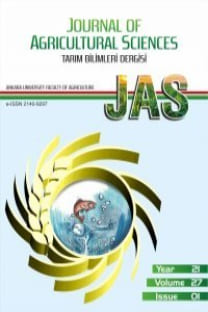ЕCOLOGICAL CULTURE OF AGRICULTURAL PRODUCERS –
The development of technocratic culture has caused numerous positive and negative changes in human life, and fully or partially solved the problems that the society has faced, but also created the new ones. One of the best examples for understanding such cultural contradictions may be agricultural production. The application of scientific and technological knowledge enabled us to produce large quantities of food, and at least partially solve one of the biggest global problems of the mankind - the shortage of food. However, it turned out that chemization and mechanization of agricultural production have had various negative environmental consequences, and that the overuse of pesticides and fertilizers has had negative impact on human health.Starting from the current views and concepts of social development in which social development includes environmental safety, and consequently the ecologization of culture, the first part of the paper presents the data obtained by an empirical research on some dimensions of ecological culture between the farmers in Serbia. In the second part of the paper, the data obtained in this study are compared to the data obtained in part of the same problem in Bulgaria. Based on the collected data and comparisons, it has been concluded that there is partially developed ecological culture in this specific group of producers in both countries.Кey words: еenvironmental crisis, ecological culture, agricultural production
Anahtar Kelimeler:
-
Ecological Culture of Agricultural Producers – Case Study in Serbia and Bulgaria
The development of technocratic culture has caused numerous positive and negative changes in human life, and fully or partially solved the problems that the society has faced, but also created the new ones. The application of scientific and technological knowledge enabled us to produce large quantities of food, and at least partially solve one of the biggest global problems of mankind - the shortage of food. However, it turned out that chemical applications and mechanization of agricultural production have had various negative environmental consequences, and that the overuse of pesticides and fertilizers has had negative impact on human health. The first part of the paper presents the data obtained by an empirical research on some dimensions of ecological culture among the farmers in Serbia. In the second part of the paper, the data obtained in this study are compared to the data obtained in part of the same problem in Bulgaria. Based on the collected data and comparisons, it has been concluded that there is partially developed ecological culture in this specific group of producers in both countries.
- Yayın Aralığı: Yılda 4 Sayı
- Yayıncı: Halit APAYDIN
Sayıdaki Diğer Makaleler
ЕCOLOGICAL CULTURE OF AGRICULTURAL PRODUCERS –
Vesna MİLTOJEVİĆ, İvana KRSTİĆ, Snežana ŽİVKOVİĆ
FOTOVOLTAİK VE TERMAL GÜNEŞ ENERJİLİ SÜREKLİ BİR KURUTUCUDA DOMATES KURUTULMASI
Mustafa AKTAŞ, Seyfi ŞEVİK, Hikmet DOĞAN, Müjdat ÖZTÜRK
Hasan Hüseyin ATAR, Koray TUÇDAN
Tarımsal üreticilerde ekolojik Kültür-Bulgaristan ve sırbistan örneği
Vesna MILTOJEVIC, Snezana ZIVKOVIC, Ivana Ilic KRSTIC
Adana yumurtalık'ta karides ağı ile avcılıkta hedef dışı ve ıskarta av oranlarının belirlenmesi
Hasan Hüseyin ATAR, Koray TUÇDAN
